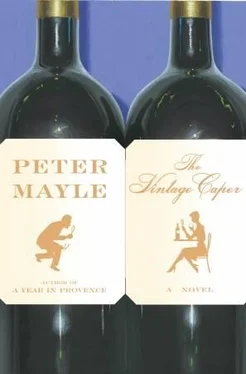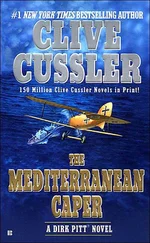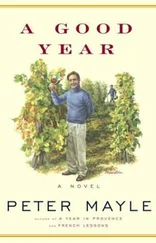“Let’s sleep on it,” said Sam. “But first, I’d better call L.A. and bring them up to speed.”
There was a steely, hostile edge to Elena’s voice when she picked up Sam’s call. He had heard that tone in her voice before, when things between them had been going wrong, and it always made him want to duck. She was formidable when roused.
“Elena, don’t bite,” he said. “It’s me. Your man in the field.”
Sam could hear her take a deep breath and let it out slowly. “Sam, I’m sorry. But I’ve just had the daily earful from Danny Roth. I thought it was him calling back. He’s always doing that. I think he knows it drives me crazy.” Elena followed this with a short but blistering tirade in Spanish, ending with a fusillade of expletives and another deep breath. “I needed that. OK, now tell me what’s happening.”
“The good news is that I’m pretty sure we’ve found the wine. Roth’s fingerprints are on some of the bottles in Reboul’s cellar, and the guy who did the match works for the police down here. So it’s solid evidence.”
“That’s wonderful, Sam. Great work. Congratulations.” But she didn’t sound ready to celebrate just yet. “Tell me I’m wrong, but I get the feeling there’s some bad news as well.”
“Could be. Reboul may have done it, but he’s smart. It’s more than likely he’s covered his tracks with fake invoices and all kinds of paperwork. If that’s what we find he’s done, we can say hello to the lawyers, and I don’t have to tell you what that means: a million bucks in legal fees, and the case tied up for months. Maybe years.”
“Not to mention a lawsuit to decide who pays the legal fees.”
“Exactly. The problem is we won’t know how he’s covered himself until we make a move on him, and then there’s no going back. So I’m beginning to have a few thoughts about plan B.”
“Does it involve homicide and a well-known L.A. entertainment lawyer? Can I come?”
“You know me, Elena. I don’t do homicides. Listen, there’s something I need to know. In a case like this, what’s the bottom line? What do you absolutely have to have in order to avoid paying out that claim?”
“OK. It boils down to three things: discovery, identification, and condition. We have to know the whereabouts of the stolen goods. We need cast-iron confirmation that they are the stolen goods. And we have to be satisfied that they are still in good condition; ideally, the same condition they were in when stolen. There are dozens of supplementary details, but essentially if those three points stack up, then we’re off the hook.”
“And who does all the checking? Is it you or is it Roth?”
“Are you kidding? Would you take Roth’s word for anything? You know that old saying, ‘Good morning, he lied’? Well, that’s Danny Roth. No, the verification is done by us-in this case, by me and a couple of experts-and then we get Roth to sign off on it. And then I push him over a cliff.”
“Thank you, Ms. Morales. That will be all. I’ll be in touch.”
“What’s plan B?”
“Trust me. You don’t want to know about it. Good night, Elena.”
“Good night, Sam.”

The night was dragging, as if the clocks had slowed down, and Sam’s mind was far too busy to let him sleep. Scotch, normally a sure soporific, had no effect. Even a CNN special on the renaissance of the Nigerian banking system was unable to work its soothing magic. He was wide, wide awake.
He put on a sweater and went out onto his terrace, hoping the sharp night air would succeed where whisky and television had failed. He stared at the moon hanging above the Vieux Port. Almost full. He checked his watch. Almost three a.m. He wondered where he’d be this time tomorrow. He wondered if it would work, if he’d thought of everything. And he wondered if the others would go along with it.
Dawn found him still on the terrace; cold and stiff, but not at all tired. In fact, he felt as though his sleepless night had given him a shot of adrenaline, and he was impatient to get on with the day. He called room service to order breakfast, and stood under a scalding shower until his skin started to redden through its California tan.
He did his best to dawdle over coffee and the Herald Tribune , but it was still too early to call Sophie and Philippe. He decided to take a walk, and on leaving the hotel instinctively turned right, in the direction of the Palais du Pharo.
The great iron gates hadn’t yet been opened for the day, and he stood looking through the black bars toward the immense green carpet of lawn that led up to the house. Vial wouldn’t be in his cellar much before ten, and the domestic staff who worked for Reboul would be taking advantage of his absence in Corsica to have an extra half hour in bed. It was surprisingly quiet for a spot so close to the center of the city. Behind him, he could hear the murmur of traffic as Marseille hurried about its early-morning business, and the mournful hoot of a ship’s siren coming from the direction of the docks beyond the Vieux Port. The sound prompted him to set off down the hill to the Quai des Belges, to see the catch of the day being set out for the fish market.
The fishing boats normally get in between 8:00 and 8:30 a.m., but the ladies of the market are there before them, their stands empty and waiting and freshly scrubbed. A traditional feature of the market-almost a tourist attraction in itself-is the often ripe vocabulary of these ladies, delivered with relish by voices powerful enough to compete with a force-eight mistral. Sam regretted that his level of French wasn’t quite high enough, or perhaps low enough, and most of the unprintable nuances escaped him. He thought he’d like to come back with Philippe as his interpreter.
The boats had started to tie up to the quay, and the badinage of the ladies increased in volume, accompanied by the soft slap of fish being arranged on the stands, eyes still bright and scales gleaming. In ones and twos, the first customers started to arrive. In the time-honored manner of the French when shopping for anything edible, they looked deeply suspicious as they went from one stand to the next-peering into the eyes of a rascasse , sniffing the gills of a galinette , weighing the attractions of a grilled daurade against the delights of a bouillabaisse .
Sam’s first and only encounter with this legendary dish-an experience that still made him shudder-had been in New Orleans, when he had been persuaded to try something called bouillabaisse Créole . It had been sufficiently nasty to make him ask the waiter about the ingredients. These turned out to include flour, oysters, margarine, and chicken broth. It was an odd mixture for a fish stew. He promised himself a genuine bouillabaisse one day. It was another reason to return to Marseille, a city he found himself liking more and more.
Without realizing, he had drifted close enough to one of the stands to arouse the sales instinct of the proprietor, a vast, weather-beaten woman wearing a faded baseball cap and heavy-duty rubber gloves. “Eh, monsieur!” she bellowed at him. “Comme il est beau, ce loup!” She picked up a large and splendid sea bass and thrust it toward him, a smile splitting her brick-red face. Sam made the mistake of nodding and smiling back. Before he could stop her, she had picked up a knife and gutted the loup with lethal speed and precision before starting to wrap it. Not a woman to argue with, Sam thought. He bought the fish.
As he started off back to the hotel, the clammy package tucked under his arm, he made a mental note to write down the recipe the woman had passed on to him. So simple, she had said, even a man like him could do it. Make two deep cuts in your fish, one on each side, and stick two or three short pieces of fennel in each cut. Paint the fish with olive oil. Grill on each side for six or seven minutes. Using a fireproof serving dish, place the fish on a bed of dried fennel stalks. Warm a soup ladle filled with Armagnac, set light to it, and pour it over the serving dish. The fennel catches fire, scents the air, and flavors the fish. “Une merveille,” she had said.
Читать дальше













